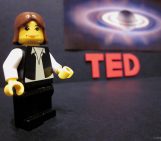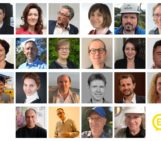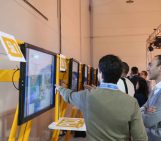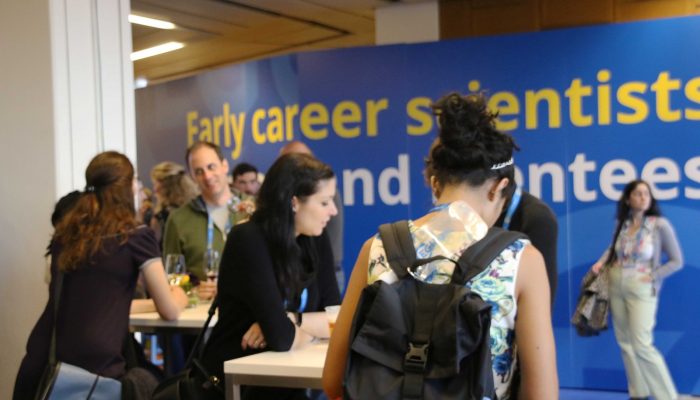
The EGU Early Career Scientists’ (ECS) Great Debates offer early career scientists at the EGU General Assembly the chance to network and voice their opinions on important topics in the format of round-table discussions. At the end of the debate, each table delivers a statement that summarises the discussion and recommendations. By publishing the results, we hope to highlight some of the needs of the EGU ECS community and how these matters should be addressed.
At this year’s ECS Great Debate, the topic was transferrable skills in science. The main question was “should early career scientists use time developing transferrable skills?” You may say this is a simple question to answer. Indeed, all the resulting statements indicated that the EGU ECS answer is YES. However, the simple statements hide a much more complex situation; a situation that varies considerably for each individual researcher. Different countries have different standards, different universities set different curricula, and different supervisors have different priorities. Some early career scientists are lucky to have many opportunities to develop transferrable skills, whereas others strive to gain these skills.
Groups defined transferrable skills as ones that could be used in other scientific disciplines and not least, in industry. Indeed, many scientific skills are transferrable. For example, data analysis and statistics were noted as valuable tools across various scientific fields and industry careers. Some groups gave extensive lists of transferrable expertise, and most were not strictly science-based. These included writing, presenting, social media, teaching, team working, project management, networking and critical thinking, to name a few. However, developing these skills do not traditionally fall into the curricula of the geosciences.
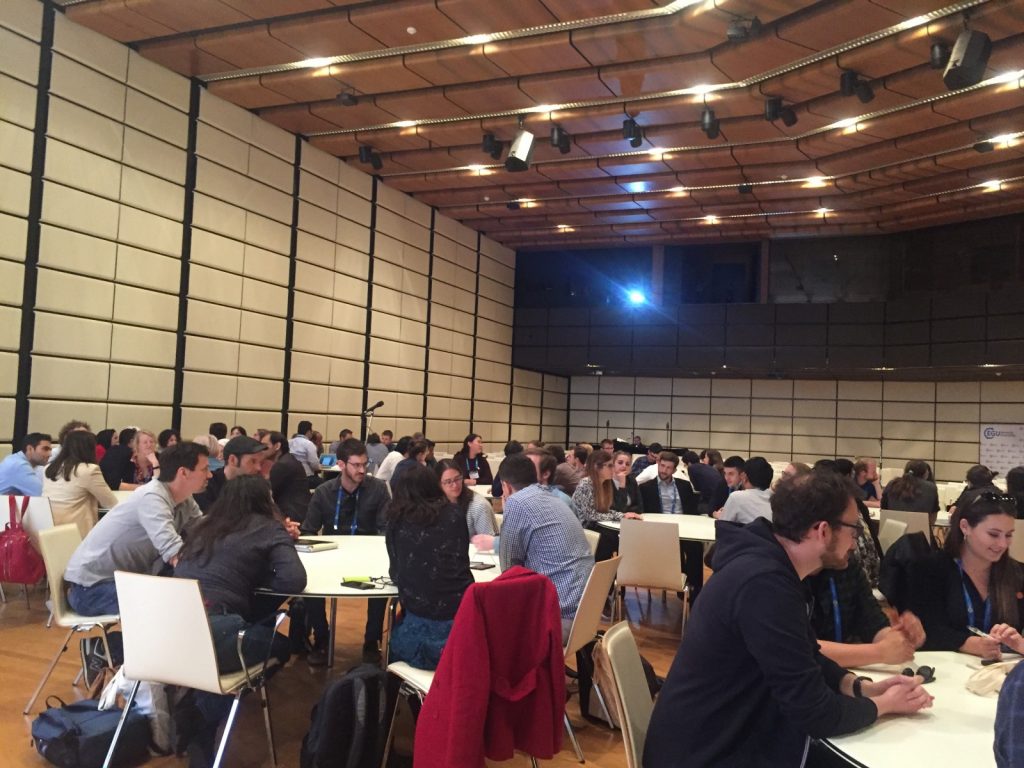
Early career scientists having round-table discussions on the importance of developing transferrable skills. (Credit: Olivia Trani)
It was evident that ECS in the EGU consider transferrable skills as extremely important to their careers and their science. They furthermore suggest that researchers should be given time and appropriate credit to develop these skills.
At the same time, many of the ECS debate participants believe in striking a balance between establishing these skills and the scientific skills that their PhDs and publications depend on.
Below you will find a list of the summary statements from the ECS that were present at the Great Debate. These reports, based on the discussions from more than 100 early career scientists, show solid support for transferrable skill training. These results are a clear indication that EGU must continue to work towards offering short courses at the General Assembly on a variety of transferrable skills. Additionally, these statements can help ECS persuade their universities to invest in opportunities to develop these skills if they do not already do so. It is clear that the EGU early career scientist community believes these skills not only help ECS develop their careers, but that they also benefit science and society!
Here are the table’s conclusions:
“Instead of currently developing random skills ourselves, on an ad-hoc basis, we need an environment to support more organized, collaborative, efficient, and recognized skill sets”
“We need transferrable skills to communicate knowledge and help society, therefore learn them, when you need them or want them, others will thank you”
“We should focus on developing these [transferrable] skills but we need to manage our time in order to go deeper into [our] own science”
“Yes, because whether you decide to stay in academia or in industry, these skills will help you be better in your field, help you work on interdisciplinary topics and communicate your work, thus increasing your success. The pros outweigh the cons!”
“Yes, to be a good scientist, researcher, or general human being, it takes more than one skill or field. It takes being open and brave to pursue new experiences to change both yourself and those around you.”
“Scientific careers are not just about getting specific knowledge in your field specialty but being able to adapt yourself to different disciplines.”
“Yes, because you get more job opportunities, it gives you flexibility, it’s fun, it makes you happy, it helps define you and strengthens your personality.”
“Yes, it is important for improving our possibilities after a PhD. We should take these opportunities as early career scientists [and] have more chances to learn these skills.”
“All scientists should be required to take time to develop useful skills for professional and personal development. These developments should not be exclusive to certain groups, should be obligatory with freedom to choose topics, should be offered to supervisors and managers, should include more courses at conferences and there should be more money for travel funding.”
“We need to find a good balance during PhD between doing science and attending courses about transferrable skills.”
“Yes, but plan which relevant transferrable skills you need to develop in the short term in relation to your project, and then update your long-term plan.”
“Transferrable skills will always be useful in your current and future situation. They should be learnt at university. It should be acceptable to spend time learning these skills in courses in tandem with your research.”
By Mathew Stiller-Reeve, co-founder of ClimateSnack and researcher at Bjerknes Centre for Climate Research, Norway
Editor’s note: This is a guest blog post that expresses the opinion of its author and those who participated at the Great Debate during the General Assembly, whose views may differ from those of the European Geosciences Union. We hope the post can serve to generate discussion and a civilised debate amongst our readers.

